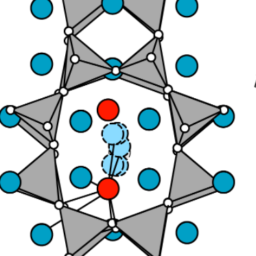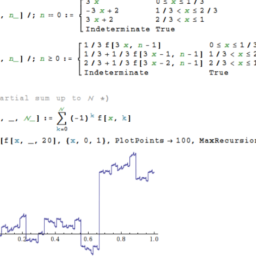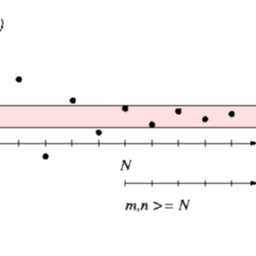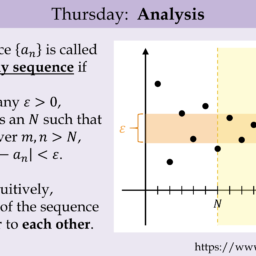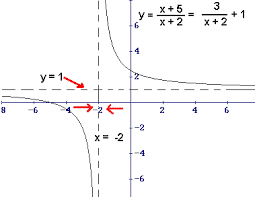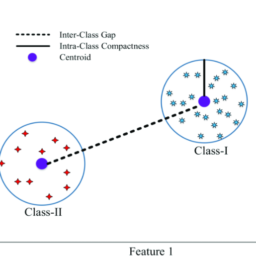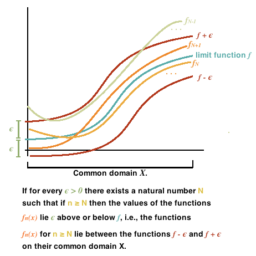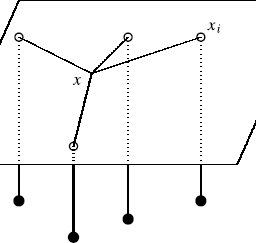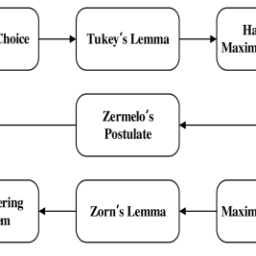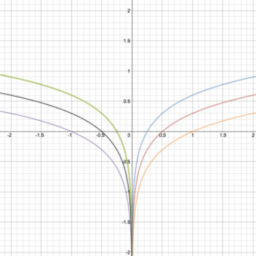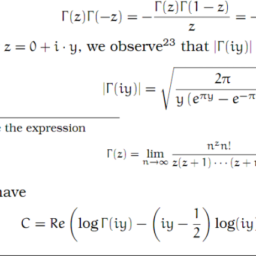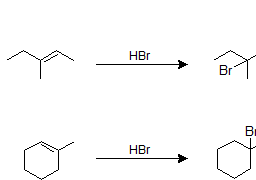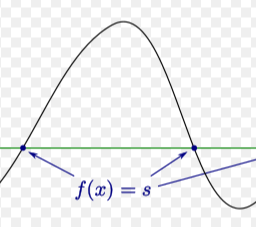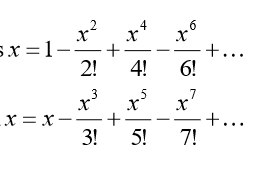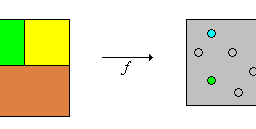9.6 A Simple Procedure for Finding Integrals
Suppose $f$ is a continuous function and $F$ is an increasing integrator function. How do you find $\int_{a}^{b} f(x) d F ?$ Is there some sort of easy way to do it which will handle lots of simple cases? It turns out there is a way. It is based on Lemma $9.3 .22$. First of all
$$
F(x+) \equiv \lim {y \rightarrow x+} F(y), F(x-) \equiv \lim {y \rightarrow x-} F(y)
$$
For an increasing function $F$, the jump of the function at $x$ equals $F(x+)-F(x-)$.
Procedure 9.6.1 Suppose $f$ is continuous on $[a, b]$ and $F$ is an increasing function defined on $[a, b]$ such that there are finitely many intervals determined by the partition $a=x_{0}<x_{1}<\cdots<x_{n}=b$ which have the property that on $\left[x_{i}, x_{i+1}\right]$, the following function is differentiable and has a continuous derivative.
$$
G_{i}(x) \equiv\left{\begin{array}{l}
F(x) \text { on }\left(x_{i}, x_{i+1}\right) \
F\left(x_{i}+\right) \text { when } x=x_{i} \
F\left(x_{i+1}-\right) \text { when } x=x_{i+1}
\end{array}\right.
$$
Also assume $F(a)=F(a+), F(b)=F(b-)$. Then $$ \int_{a}^{b} f(x) d F=\sum_{j=0}^{n-1} \int_{x_{j}}^{x_{j+1}} f(x) G_{j}^{\prime}(x) d x+\sum_{i=1}^{n-1} f\left(x_{i}\right)\left(F\left(x_{i}+\right)-F\left(x_{i}-\right)\right) $$
202
CHAPTER 9. INTEGRATION
Here is why this procedure works. Let $\delta$ be very small and consider the partition
$$
\begin{aligned}
a &=x_{0}<x_{1}-\delta<x_{1}<x_{1}+\delta \
&<x_{2}-\delta<x_{2}<x_{2}+\delta<\
\cdots x_{n-1}-\delta &<x_{n-1}<x_{n-1}+\delta<x_{n}-\delta<x_{n}=b
\end{aligned}
$$
where $\delta$ is also small enough that whenever $|x-y|<\delta$, it follows $|f(x)-f(y)|<\varepsilon$. Then from the properties of the integral presented above,
$$
\begin{gathered}
\int_{a}^{x_{1}-\delta} f d F+\int_{x_{1}+\delta}^{x_{2}-\delta} f d F+\cdots+\int_{x_{n-1}+\delta}^{b} f d F+\sum_{i=1}^{n-1}\left(f\left(x_{i}\right)-\varepsilon\right)\left(F\left(x_{i}+\delta\right)-F\left(x_{i}-\delta\right)\right) \
\leq \int_{a}^{b} f d F \leq \int_{a}^{x_{1}-\delta} f d F+\int_{x_{1}+\delta}^{x_{2}-\delta} f d F+\cdots+\int_{x_{n-1}+\delta}^{b} f d F \
+\sum_{i=1}^{n-1}\left(f\left(x_{i}\right)+\varepsilon\right)\left(F\left(x_{i}+\delta\right)-F\left(x_{i}-\delta\right)\right)
\end{gathered}
$$
By Lemma 9.3.22 this implies
$$
\begin{aligned}
&\int_{a}^{x_{1}-\delta} f G_{0}^{\prime} d x+\int_{x_{1}+\delta}^{x_{2}-\delta} f G_{1}^{\prime} d x+\cdots+\int_{x_{n-1}+\delta}^{b} f G_{n-1}^{\prime} d x \
&+\sum_{i=1}^{n-1}\left(f\left(x_{i}\right)-\varepsilon\right)\left(F\left(x_{i}+\delta\right)-F\left(x_{i}-\delta\right)\right) \leq \int_{a}^{b} f d F \leq
\end{aligned}
$$
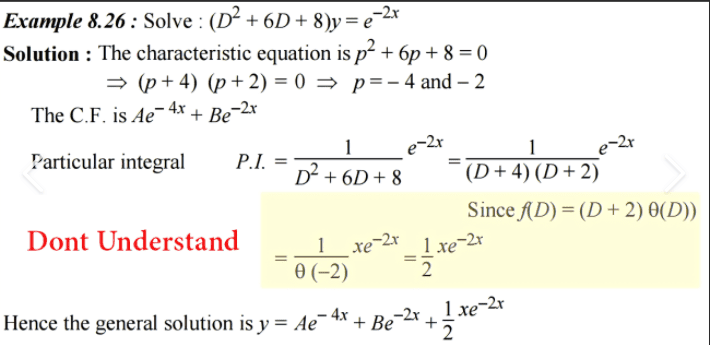
假设$f$ 是一个连续函数,$F$ 是一个递增积分函数。您如何找到 $\int_{a}^{b} f(x) d F ?$ 是否有某种简单的方法可以处理许多简单的情况?事实证明有一种方法。它基于引理 $9.3 .22$。首先
$$
F(x+) \equiv \lim {y \rightarrow x+} F(y), F(x-) \equiv \lim {y \rightarrow x-} F(y)
$$
对于递增函数$F$,函数在$x$ 处的跳跃等于$F(x+)-F(x-)$。
过程 9.6.1 假设 $f$ 在 $[a, b]$ 上是连续的,并且 $F$ 是在 $[a, b]$ 上定义的递增函数,因此有有限多个区间由分区 $a=x_ 确定{0}<x_{1}<\cdots<x_{n}=b$ 具有在$\left[x_{i}, x_{i+1}\right]$ 上的性质,下面的函数是可微的并且具有连续导数。
$$
G_{i}(x) \equiv\left{\begin{array}{l}
F(x) \text { on }\left(x_{i}, x_{i+1}\right) \
F\left(x_{i}+\right) \text { 当 } x=x_{i} \
F\left(x_{i+1}-\right) \text { 当 } x=x_{i+1}
\end{数组}\对。
$$
还假设 $F(a)=F(a+), F(b)=F(b-)$。那么 $$ \int_{a}^{b} f(x) d F=\sum_{j=0}^{n-1} \int_{x_{j}}^{x_{j+1}} f (x) G_{j}^{\prime}(x) d x+\sum_{i=1}^{n-1} f\left(x_{i}\right)\left(F\left(x_{ i}+\right)-F\left(x_{i}-\right)\right) $$
202
第|9章。一体化
这就是为什么这个过程有效。让 $\delta$ 非常小并考虑分区
$$
\开始{对齐}
一个 &=x_{0}<x_{1}-\delta<x_{1}<x_{1}+\delta \
&<x_{2}-\delta<x_{2}<x_{2}+\delta<\
\cdots x_{n-1}-\delta &<x_{n-1}<x_{n-1}+\delta<x_{n}-\delta<x_{n}=b
\end{对齐}
$$
其中 $\delta$ 也足够小,以至于每当 $|x-y|<\delta$ 时,它都遵循 $|f(x)-f(y)|<\varepsilon$。那么根据上面给出的积分的性质,
$$
\开始{聚集}
\int_{a}^{x_{1}-\delta} fd F+\int_{x_{1}+\delta}^{x_{2}-\delta} fd F+\cdots+\int_{x_{n-1 }+\delta}^{b} fd F+\sum_{i=1}^{n-1}\left(f\left(x_{i}\right)-\varepsilon\right)\left(F\left (x_{i}+\delta\right)-F\left(x_{i}-\delta\right)\right) \
\leq \int_{a}^{b} fd F \leq \int_{a}^{x_{1}-\delta} fd F+\int_{x_{1}+\delta}^{x_{2}- \delta} fd F+\cdots+\int_{x_{n-1}+\delta}^{b} fd F \
+\sum_{i=1}^{n-1}\left(f\left(x_{i}\right)+\varepsilon\right)\left(F\left(x_{i}+\delta\right )-F\left(x_{i}-\delta\right)\right)
\结束{聚集}
$$
根据引理 9.3.22,这意味着
$$
\开始{对齐}
&\int_{a}^{x_{1}-\delta} f G_{0}^{\prime} d x+\int_{x_{1}+\delta}^{x_{2}-\delta} f G_{1}^{\prime} d x+\cdots+\int_{x_{n-1}+\delta}^{b} f G_{n-1}^{\prime} dx \
&+\sum_{i=1}^{n-1}\left(f\left(x_{i}\right)-\varepsilon\right)\left(F\left(x_{i}+\delta\右)-F\left(x_{i}-\delta\right)\right) \leq \int_{a}^{b} fd F \leq
\end{对齐}
$$

微积分note Integer Multiples of Irrational Numbers 请认准UprivateTA™. UprivateTA™为您的留学生涯保驾护航。


